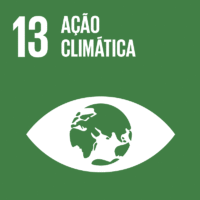Ciência_Iscte
Publicações
Descrição Detalhada da Publicação
Space and Planetary Imaging using JPEG2000
Proc 7th International Workshop on Simulation for European Space Programmes, ESTEC, Noordwijk, The Netherlands
Ano (publicação definitiva)
2002
Língua
Inglês
País
Países Baixos (Holanda)
Mais Informação
Web of Science®
Esta publicação não está indexada na Web of Science®
Scopus
Esta publicação não está indexada na Scopus
Google Scholar
Esta publicação não está indexada no Overton
Abstract/Resumo
The raising demand for Digital content Rights Management (DRM), protection, and security, enables effective on-line
access, exchange, and trading of all types of digital media items (ranging from a simple text file to a large space or
planetary image) and, at the same time, support global interoperability of customer devices and traded items, which can
only be met by a good mix of open architectures and proprietary technologies. In this paper, we present a novel
integrated architecture that supports the secure handling of large remote sensing ISO JPEG2000-coded images, obtained
from satellite. This effort is within the scope of further developments and new extensions for this standard, namely:
- Trans-coding of proprietary digital image formats used in satellite imagery, to the new JPEG2000 format;
- Inexpensive network clusters for parallel computing to improve the algorithmic process of coding very large digital
images obtained from satellites.
- Coding of multi-component and multi-spectral images as well as volumetric images (JP3D);
- Exploration of interactive online image satellite catalogs (JPIP);
- Secure transmission, and protection of the image content based on OpenSDRM (JPSEC).
Agradecimentos/Acknowledgements
--
Palavras-chave
JPEG2000,JP3D,JPSEC,JPIP,DRM
Classificação Fields of Science and Technology
- Ciências da Computação e da Informação - Ciências Naturais
- Engenharia Eletrotécnica, Eletrónica e Informática - Engenharia e Tecnologia
Contribuições para os Objetivos do Desenvolvimento Sustentável das Nações Unidas
Com o objetivo de aumentar a investigação direcionada para o cumprimento dos Objetivos do Desenvolvimento Sustentável para 2030 das Nações Unidas, é disponibilizada no Ciência_Iscte a possibilidade de associação, quando aplicável, dos artigos científicos aos Objetivos do Desenvolvimento Sustentável. Estes são os Objetivos do Desenvolvimento Sustentável identificados pelo(s) autor(es) para esta publicação. Para uma informação detalhada dos Objetivos do Desenvolvimento Sustentável, clique aqui.

 English
English




